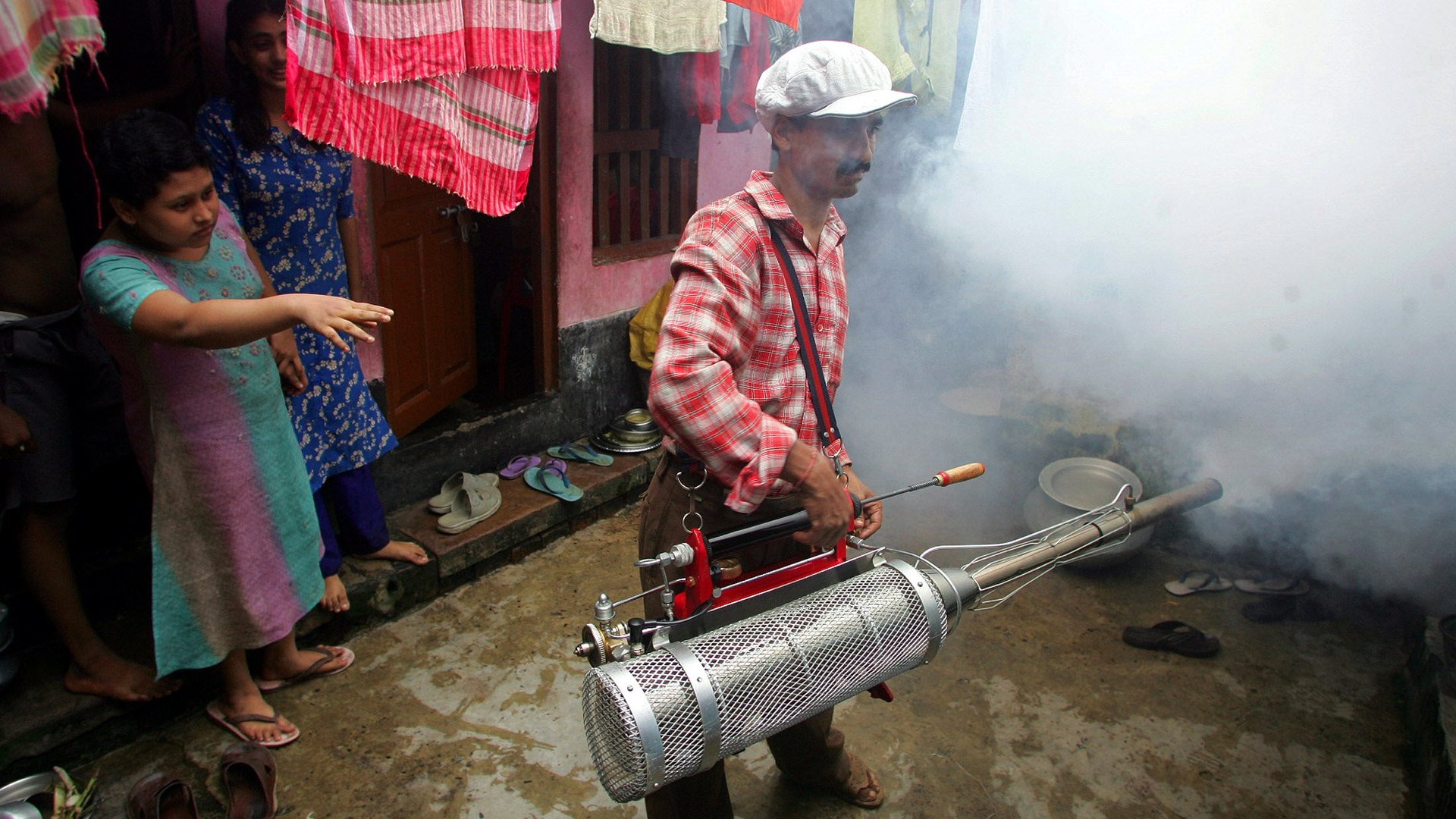The words “Made in China” could be on their way to saving millions of lives
China has a reputation for making quality consumer goods cheaply, quickly and in bulk. Now the world can turn to it to mass-produce a life-or-death product: vaccines.


China has a reputation for making quality consumer goods cheaply, quickly and in bulk. Now the world can turn to it to mass-produce a life-or-death product: vaccines.
The World Health Organization (WHO) announced this morning that it had “prequalified” a Japanese encephalitis (JE) vaccine manufactured by China’s Chengdu Institute of Biological Products. It’s the first time the WHO has given its imprimatur to a drug developed in China, and will make financing and distribution of the drug in poor countries much more affordable.
JE is a mosquito-borne illness that affects at least 70,000 people annually in Southeast Asia and the Western Pacific. One particularly bad outbreak in India and Nepal killed 2,000 people in 2005. The disease, sometimes called “brain fever,” kills 10,000 to 15,000 people every year, and worse, leaves up to half of its survivors—who are often children in poor families—with life-long mental disabilities.
In 2003 an NGO called Path, which specializes in finding ways to make medical treatment cheaper and easier to deliver in developing countries, got a grant from the Bill & Melinda Gates Foundation to tackle Japanese encephalitis. At the time, a two-dose JE vaccine manufactured in the United States—with the virus taken from the brains of infected mice—cost $500.
Path found that China had developed a cheap, single-dose vaccine for JE and used it to vaccinate millions of children. The manufacturer, Chengdu Institute of Biological Products, is a subsidiary of the state-run firm that makes 60% of the vaccines used in China’s immunization program. The problem was developing foreign trust in a Chinese pharmaceutical—and getting the vaccine to markets outside China at a low price.
That entailed WHO prequalification—a rigorous evaluation of a vaccine’s clinical properties, its manufacturing process, and of the strength of regulation in the country where it is manufactured. The payoff is that the vaccine can then be distributed by UNICEF and financed by GAVI, a global financing consortium for vaccines in low-income countries that has earmarked $42 million to fight the disease.
With the Gates grant, Path helped the Chengdu Institute run clinical trials and build a new manufacturing facility in exchange for establishing a public sector price for the vaccine as low as $0.21 a dose. The new facility can make 80 million doses a year.
But with one vaccine prequalified, others could follow. That means China could join India as a major source of cheap immunizations for poor countries, and that has health experts excited. “Like any other business, competition is good for the vaccine market,” Dr. Kathy Neuzil, who directed Path’s work on JE, says. “Very few achievements that come along in public health are of this magnitude.”